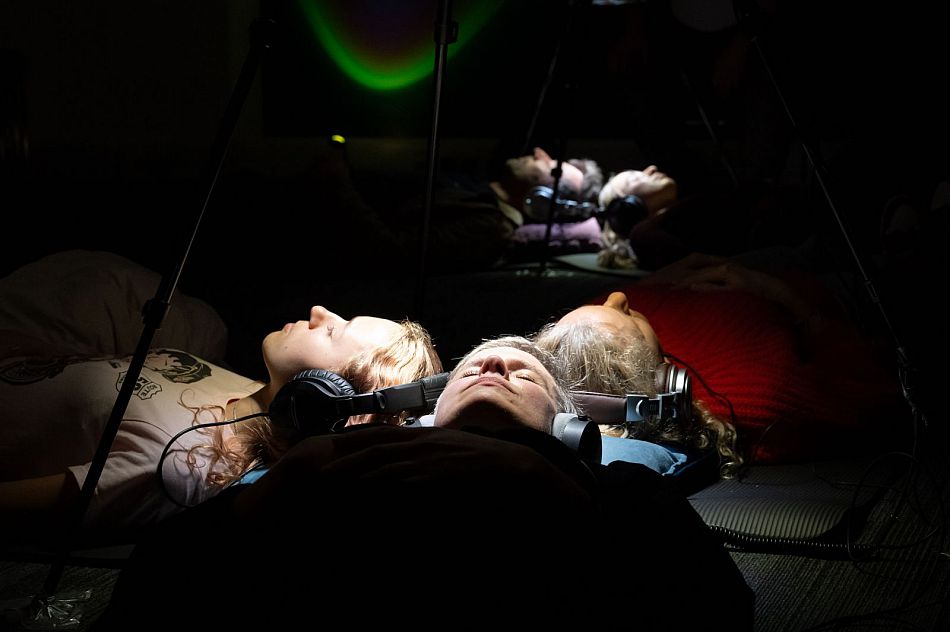Neurophenomenology and phenomenological control
 Image credit: Stuart Robinson 2024
Image credit: Stuart Robinson 2024
Our research
Neurophenomenology emphasises the importance of first-person descriptions of conscious experiences that are amenable to neurocognitive methodologies, with the overarching aim of explaining these experiences in terms of neural mechanisms. We apply this approach to a wide range of phenomena, including synaesthesia (Schwartzman, Seth), visual hallucinations (Hewitt, Schwartzman, Seth), Stroboscopic Light Stimulation (Beaute, Hewitt, Nacker, Schwartzman, Seth), psychedelics (Schwartzman, Seth). As part of this we study individual differences in perception (see Perception, Learning and Memory). Here, there is a particular interest in phenomenological control and demand characteristics. Phenomenological control refers to an individual's ability to modify their experiences. Individual differences in this trait have the potential to explain varying responses to demand characteristics in a wide range of psychological experiments.
People
Romy Beaute; Zoltan Dienes; Trevor Hewitt; Peter Lush; Danny Nacker; David Schwartzman; Anil Seth